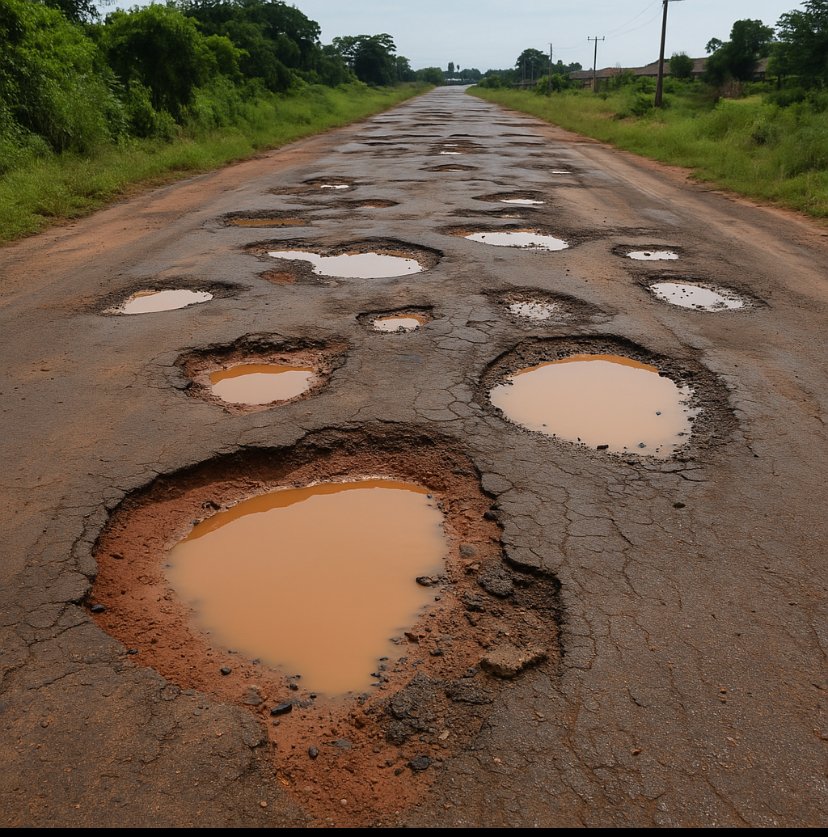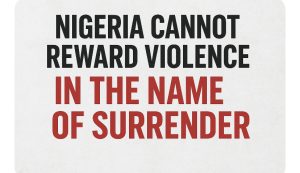Federal Roads: Why Nigerians Must Hold FERMA Accountable, Not State Governments

Illustration of Bad Portion of Highway
Across Nigeria, some federal highways that should connect states, grow the economy and unite the country are in terrible condition. Drivers face daily delays, farmers lose their goods before they reach markets, transporters spend more on repairs and fuel and accidents claim lives. While many people blame state governments, most of these failing roads are the direct responsibility of the Federal Roads Maintenance Agency, FERMA.
Why most Federal roads cannot be fixed by State governments is because some have already been awarded by the Federal Executive Council, creating legal issues between the contractors and the government. Such roads cannot be touched by State governments, no matter how urgent their repair needs may be.
FERMA was set up to maintain and repair federal roads, yet its work often tells a different story. Across the country, the agency’s signboards announce road repairs or rehabilitation, but in too many cases the work is either slow, poorly done, or abandoned halfway. In some places, the only evidence of any activity is the signpost itself, while potholes remain and drainages are blocked. This pattern has left Nigerians frustrated and doubtful about the agency’s performance.
The public deserves to know exactly how FERMA has used its resources. For the last ten years, the agency has received large budget allocations. Nigerians should be able to see how much was budgeted, how much was released, which roads were awarded for repairs, who got the contracts, and how many of these projects were completed and confirmed. This level of accountability is essential if public trust is to be restored.
There are also allegations from citizens and the media that some FERMA projects are substandard or not executed at all, and that even jobs done directly by the agency’s own staff often fail quality tests. Such issues point to weak supervision, poor contract management, and possible corruption.
Nigeria’s economy depends heavily on road transport. Bad federal highways not only disrupt trade but also put lives at risk. The situation calls for urgent and practical measures to keep critical routes open and safe while long-term solutions are planned and executed.
The Federal Government must order a full independent audit of FERMA’s finances, contracts and performance over the last decade. The National Assembly should set up a special committee with the power to question FERMA officials, contractors and budget officers about how funds have been used and why so many federal roads remain in bad condition.
FERMA itself must become more transparent and efficient. Details of every road project, including cost, contractor, completion date and independent inspection reports, should be published online for public access. Payments must only be made after projects have been verified to meet quality standards. The agency also needs modern equipment, trained staff, and a strict maintenance plan that keeps roads in good condition all year round.
Partnership with state governments and local communities will make monitoring easier. Residents and state officials can confirm if a project is completed properly and report when repairs are urgently needed.
The media and civil society should continue to track FERMA’s activities, exposing both progress and failures. Citizens can help by sharing geo-tagged photos, videos and reports of bad roads or abandoned works.
If corruption is discovered, there should be no delay in taking action. Contractors who fail to deliver should be banned from getting new jobs, and officials who misuse their positions should be prosecuted. At the same time, the road maintenance system should be restructured to prevent abuse, with open bidding for contracts, strict supervision, and long-term performance-based agreements that reward quality work.
Nigeria can also explore public private partnerships for large rehabilitation projects, use technology to track repairs and monitor road conditions in real time, and adopt long-term contracts that pay contractors for keeping roads in good condition rather than just short-term patching.
Bad federal roads are not just a public nuisance. They are a national economic burden, a safety hazard, and a stain on Nigeria’s image. FERMA has the mandate and resources to change this story. The Federal Government, National Assembly, and citizens must demand action, enforce accountability, and push for reforms until the country’s federal roads are safe, reliable, and worthy of a growing nation. The time for excuses is over. The time for results is now.







